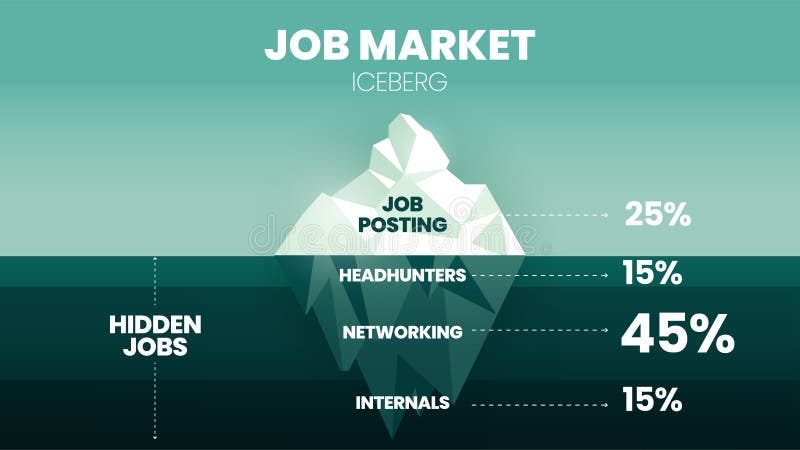If you’ve ever fumbled over the question, “How do I reach out to a recruiter without sounding desperate or, worse, like a spam bot?” trust me, you’re not alone. Many job seekers find themselves paralyzed by the thought of sending an introductory email. But guess what? Not sending that email could be costing you big time—like, “never-getting-a-call-for-that-dream-job” big.
The good news? Learning how to send an introductory email to a recruiter is pretty straightforward once you know the key strategies, best practices, and just a touch of emailing finesse. In this mega-guide, we’ll talk about the dos and don’ts of emailing recruiters, the statistics showing why it’s a smart move, how to track down a recruiter’s email address in the first place, and even how to reach out to multiple recruiters simultaneously without looking shady. Ready to get started? Let’s go.
Why Bother Emailing a Recruiter in the First Place?
The Recruiter’s Role in Hiring
Recruiters are the middle-person between you and the hiring manager. Their job is to find the best fit for a company’s open roles, which means they’re often on the lookout for qualified candidates like you. If you can get on a recruiter’s radar in a positive way, you’re essentially fast-tracking your job search.
The Hidden Job Market

Studies have shown that a significant percentage of job openings—some estimates say up to 70%—are never even publicly posted. These “hidden jobs” get filled through networks, referrals, and (you guessed it!) recruiters. So by emailing a recruiter directly, you might be opening doors to opportunities that never make it to a job board.
The Perks of Relationship-Building
A recruiter who knows you (and your skill set) is likely to remember you for future openings. This can lead to referrals to other hiring managers, insider tips on the application process, or simply better positioning for the roles that do go public. Yes, it takes a few minutes of your day to craft that email—but it can pay dividends over the course of your career.
The Stats: Does Reaching Out to Recruiters Actually Work?
You might be thinking, “Alright, emailing a recruiter sounds good, but does the data back it up?” Let’s check:
- A LinkedIn Talent Solutions report found that 87% of recruiters use LinkedIn regularly. While that’s not directly email-related, it shows you how proactive recruiters are about finding new talent—and how open they might be to direct outreach.
- A Jobvite survey found that 46% of surveyed recruiters say employee referrals (which often come through proactive outreach) are their top source of quality hires.
- Enhancv cites that emailing a recruiter directly can increase your chances of getting a response compared to tossing an application into the dreaded “black hole.”
Bottom line: The numbers suggest that a well-crafted, personalized email to a recruiter is more than just a shot in the dark.
Finding Recruiter Email Addresses Like a Pro
Pro Tip: Don’t let the lack of a readily available “Contact Me!” button on a recruiter’s LinkedIn profile stop you. Here’s how to channel your inner Sherlock Holmes and track down their email:
- Company Website “Careers” or “Team” Page
Sometimes companies have a dedicated page listing all internal recruiters and HR staff. You’d be surprised how often an email address gets posted there in plain sight. - Job Postings
Pay close attention to the job description. Some recruiters list their email addresses for questions about the role. Even if not explicitly listed, the email format might be hinted at (e.g., “recruiting@companyname.com”). - Staffing and Headhunting Agencies
Agencies often put up multiple job listings for different clients. The recruiter’s email might show up in the “Contact” section of these listings. - LinkedIn
While LinkedIn might not always display an email, some recruiters do make it visible in their “Contact Info” section. If not, send them a short LinkedIn message first, then ask for an email. - Google It
“Name of Recruiter” + “Company Name” + “Email” can sometimes yield gold. - Tools or Extensions
Extensions like Hunter.io or Clearbit can help you guess or verify professional email addresses based on patterns (like firstname.lastname@companyname.com). But use them ethically!
One Recruiter vs. Many Recruiters: Which Strategy Is Right for You?
The Single-Recruiter Approach
- When it’s best: You’ve found your dream job posted by a specific recruiter, or you have a niche skill set that aligns with a particular contact.
- Pros: Personalized outreach can build a stronger relationship, increasing the likelihood of a response.
- Cons: If that recruiter has a small pool of clients or limited roles, your reach might not be as wide.
The Mass-Recruiter Strategy
- When it’s best: You’re in a general field (e.g., marketing, sales) and you want to cast a wide net.
- Pros: More potential leads, faster. The law of averages says you’ll likely get more bites.
- Cons: More work to manage multiple conversations. Also, your outreach must still feel somewhat personalized—otherwise, you risk being flagged as spam.
(Spoiler: You can do both! It’s entirely possible to start with targeted recruiter emails for your top choices, then broaden your reach as needed.)
Personalization: The Secret Weapon to Stand Out in a Crowded Inbox
It’s 2025—everyone’s inbox is flooded. (Okay, fine, maybe that’s been true since 2010.) The only way to stand out is personalization. Here are some ways to do it:
- Use Their Name (obvious, but you’d be amazed how many “Dear Sir/Madam” emails still get sent).
- Mention Mutual Connections: “I noticed we both know Jane from XYZ Company.”
- Highlight the Recruiter’s Specialty: If they recruit for tech roles and you’re a software developer, say so.
- Reference Recent Achievements: Did the recruiter post on LinkedIn about completing a certification or attending a conference? Congratulate them.
- Focus on Shared Interests: Maybe you both went to the same college or shared an interest in volunteer work.
In short, do your homework. A minute or two of research can make all the difference in whether your email is read or instantly trashed. (or outsource the work to Skail)
What to Include in Your Intro Email
Here’s a quick breakdown of the major components:
- Subject Line: Keep it concise and relevant (e.g., “Software Developer with 5 Years’ Experience Seeking Opportunities”).
- Greeting: “Hello [Name],” or “Hi [Name],” is plenty.
- How You Found Them: Mention you got their email from a job posting, LinkedIn group, or a mutual connection.
- Your Elevator Pitch: A short summary of your key skills, achievements, and what you’re looking for.
- Why You’re a Good Fit: Connect your skills to the roles they typically hire for or your strong interest in their company’s mission.
- A Polite Ask: Suggest a brief call or a meeting, or ask if you can send your resume for review.
- Close Courteously: “Thank you for your time” or “Looking forward to hearing from you.”
- Signature: Include your full name, phone number, LinkedIn URL, or any relevant portfolio links.
While you are tempted to attach a CV, keep in mind that attachments and links can sometimes trigger firewalls. If that’s the case your email will not be delivered, for that reason you may want to consider having the resume request be your Call-to-Action for the email. (ex. Reply to this email to receive my Resume & cover letter)
Subject Lines That Increase Open Rates
Getting your email opened is half the battle. According to various marketing studies, 35% of recipients open an email based purely on the subject line. Here are some quick subject line ideas:
- “[Your Name]: Experienced [Job Title] Looking for [Specific Role]”
- “Met You at [Event Name]—Excited to Connect!”
- “Referral from [Mutual Contact]: [Your Name] Introduction”
- “Quick Inquiry re: [Company/Position] Opportunities”
- “Seeking [Type of Role] in [Location]—[Your Name]”

10 Sample Introductory Emails
Below are 10 templates you can modify to fit your unique situation. Remember to personalize them!
1. The Direct Approach (for a Specific Opening)
Subject: Software Developer with 5 Years’ Experience Seeking Roles at [Company Name]
Hello [Recruiter Name],
I came across your details on the [Company Name] careers page and noticed you’re recruiting for a Senior Software Developer. I’ve spent the last five years at a fintech startup, developing APIs that handled high-volume transactions. I’m excited to explore similar opportunities at [Company Name], especially given its reputation for innovation in the finance sector.
Would you be open to a brief call to discuss current openings and whether I might be a strong fit? If so, I’d be happy to forward my resume or set up a quick chat at your convenience.
Thank you for your time, and I hope to connect soon!
Best regards,
[Your Name]
[Phone Number]
[LinkedIn Profile URL]
2. The Event Follow-Up
Subject: Great to Meet You at [Event Name]—Following Up
Hey [Recruiter Name],
It was great chatting with you at [Event Name] last week! I appreciated your insights on how the biotech industry is evolving. As a recent graduate in Biochemistry with a passion for R&D, I’d love to learn more about how I could fit into your talent pool.
If you have a moment, I’d be happy to share my resume or hop on a quick call to discuss potential entry-level opportunities in biotech.
Thanks again for your time!
Best,
[Your Name]
3. The Mutual Connection
Subject: Introduction via [Mutual Contact Name]
Hello [Recruiter Name],
[Mutual Contact Name] suggested I reach out to you regarding opportunities in the digital marketing space. I’ve successfully managed social media ad campaigns with budgets of over $50,000 monthly, and I’m looking to expand my skill set in a growth-focused environment.
I’d love to learn about any positions you think might be a fit for my experience. Would you be available for a brief phone call or Zoom meeting?
Looking forward to your thoughts,
[Your Name]
4. The Recent Grad
Subject: Recent [University Name] Grad Exploring Tech Roles
Hi [Recruiter Name],
Hope you’re doing well! I just graduated from [University Name] with a degree in Computer Science and noticed you frequently place new grads in entry-level developer roles. I completed a major capstone project focused on machine learning and would love to bring these skills to an innovative company.
If you think I’d be a good fit for any of your clients, I’d love to chat. Let me know if we can set something up this week.
Thanks in advance,
[Your Name]
5. The “Career Change” Pitch
Subject: Former Sales Pro Transitioning to Project Management
Hello [Recruiter Name],
I’m reaching out because I’m making a shift from sales to project management, specifically in the tech sector. Over the past six years, I’ve coordinated cross-functional teams to meet quarterly sales goals and discovered a passion for project planning and organization.
I’d be thrilled to discuss how my background aligns with any PM roles you’re currently recruiting for. Would you be open to connecting?
Best regards,
[Your Name]
6. The Location-Based Inquiry
Subject: Relocating to [City Name]—Seeking Finance Roles
Hi [Recruiter Name],
I hope you’re doing well. I’m relocating to [City Name] next month and am exploring finance roles in the region. With seven years of experience in financial analysis at a Fortune 500 company, I’m looking for a dynamic environment where I can continue to grow.
Do you have a few minutes to chat about the job market in [City Name]? I’d love any guidance on roles that might match my skill set.
Warm regards,
[Your Name]
7. The Mass Outreach Template (But Personalized!)
Subject: Marketing Specialist Open to New Opportunities—Quick Introduction
Hello [Recruiter Name],
I found your email via LinkedIn and saw that you often hire for marketing roles. I’ve spent the last three years optimizing digital campaigns at a fast-paced startup, driving a 40% increase in lead generation.
If any of your clients are seeking a marketing specialist who can hit the ground running, I’d be thrilled to talk. Would you like me to send over my resume for a closer look?
Kind regards,
[Your Name]
8. The “No Subject Line? No Problem!” Approach
(Inspired by this Quora thread)
Subject: Inquiry About [Company Name] Opportunities
Hey [Recruiter Name],
I noticed there wasn’t a specific subject line in your company contact form, so I hope it’s okay I’m reaching out directly! I’m currently a Data Analyst at [Current Company], looking to transition into a role that focuses on big data analytics and machine learning—two areas I see [Company Name] excels in.
I’d love to see if my background in predictive modeling might be a fit for any open positions on your team. If you have time for a short call or email exchange, I’d be grateful for the chance to learn more.
Best,
[Your Name]
9. The “Existing Role or Not” Template
Subject: Introducing Myself for Future Openings (Product Management)
Hello [Recruiter Name],
My name is [Your Name], and I’m a seasoned product manager with experience at both startups and established tech firms. Even if you’re not currently hiring for product management, I’d love to keep in touch for future openings. I have a track record of launching products that increased revenue by over 30%.
Should you come across an organization needing a product manager who can handle the entire lifecycle, please feel free to reach out. I’d be happy to provide more details or set up a call.
Best regards,
[Your Name]
10. The “Follow-Up If No Reply” Nudge
Subject: Following Up on My Introduction from Last Week
Hi [Recruiter Name],
I hope you’re doing well. I’m just checking back in regarding the email I sent last week about opportunities in UX/UI design. I’d still love to connect if you think my background could be a good fit for any roles you’re working on.
Thanks, and have a wonderful day!
Best,
[Your Name]
Leveraging Tools Like Skail.ai for Mass Outreach
So, you’ve decided you want to email not one, not two, but every recruiter in your niche. That’s where tools like Skail, AI for Recruiting, come in handy. Skail.ai taps into your CRM (or becomes your CRM), scours your recipients’ business websites, and even gathers social media details to craft 100% unique emails. If you’re sending out dozens (or hundreds) of recruiter emails, using a tool like this can save you from a repetitive stress injury—and from sounding like a robot.
Caution with Mass Outreach
While automation is great, keep an eye on personalization. Tools like Skail.ai are designed to mimic your brand voice and add relevant details so each email doesn’t feel automated. This is key, because if recruiters catch even the slightest whiff of “form letter,” you’ll be tossed into the circular file (a.k.a. Trash) immediately.

Best Practices: Timing, Tone, and Follow-Up
- Timing
Try emailing mid-morning or mid-afternoon. Avoid the Monday morning rush and the Friday 4 p.m. meltdown. Studies vary, but mid-week tends to work well. - Tone
Keep it friendly but professional. A dash of humor can make you memorable—just don’t overdo it. - Follow-Up
If you don’t hear back in a week or two, a gentle nudge is totally acceptable. Recruiters are busy folks; sometimes your email just slips under the radar.
(Fun Fact: According to HubSpot, follow-up emails can significantly increase your response rate if done politely.)
11. Common Mistakes to Avoid
- Too Long, Didn’t Read (TL;DR)
Keep it concise. Recruiters rarely have time to read a novel about your life story. - No Clear Ask
Don’t just say, “Hi, I’d like a job.” Specify what sort of roles you’re seeking or propose a quick call. - Generic, Bland Greetings
“To whom it may concern” might be better than “Hi, [RECRUITER_NAME],” but neither is good if you can find their real name. - Attachments Overload
Don’t attach your whole portfolio, 15 references, and a cover letter in the very first email. Start with an introduction and send additional materials upon request or after you’ve got a reply. - Being Overly Aggressive
Follow up once or twice, not 20 times. You want to show interest, not desperation.
12. Sources & Further Reading
- Enhancv – Great guide on introducing yourself to recruiters.
- Quora – Interesting perspectives on emailing recruiters.
- LinkedIn Talent Solutions – Statistics on recruiter behavior and LinkedIn usage.
- Jobvite – Reports and surveys on what recruiters look for in candidates.
- HubSpot – Insights on email marketing, follow-ups, and open rates.
Final Thoughts
Emailing a recruiter might feel like stepping into the spotlight on karaoke night—you’re excited, maybe a little nervous, and unsure how you’ll be received. But rest assured, recruiters want to hear from qualified, enthusiastic job seekers. By doing a bit of research, personalizing your message, and following best practices, you’ll greatly increase your chances of landing that initial conversation that could lead to the perfect job opportunity.
And remember, don’t just send one email and hope for the best. If you’re serious about finding a new role, reaching out to multiple recruiters (wisely, not spammy) can help widen your net. Tools like Skail.ai can make that process more manageable while keeping personalization high.
So go ahead, take that bold step. Craft your perfect intro, double-check that subject line, and hit send. Your future self (the one rocking a shiny new job) will thank you.



